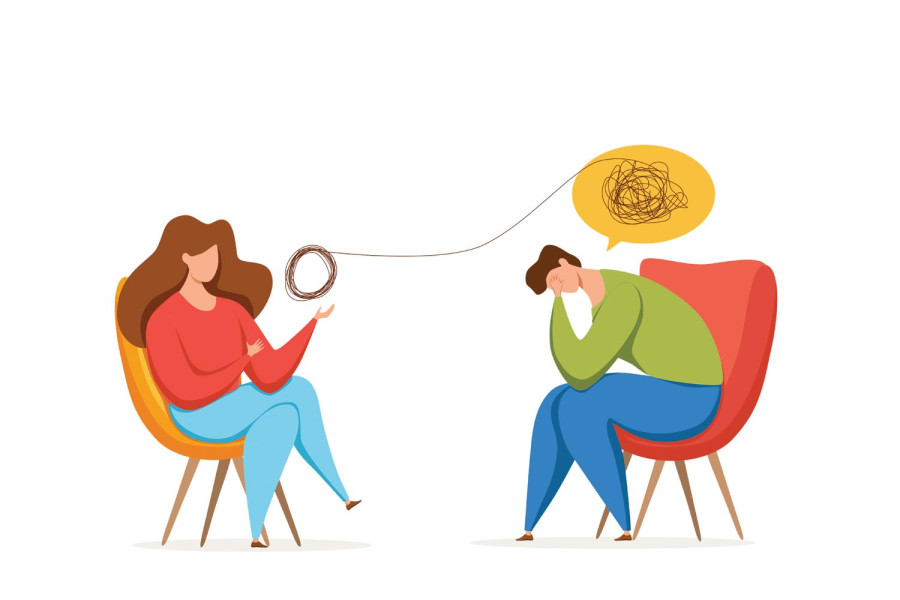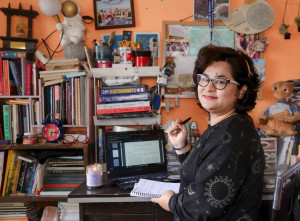Culture & Lifestyle
You’ve decided to go to therapy. Where do you start?
Finding a therapist who is the right fit can be a significant challenge. But with a little patience and proper research, things get much easier.
Dristy Moktan
Therapy, for many of us, is still a door to a new and unknown world. Even if we do have little or some knowledge, there is hesitation within ourselves to actually take a step. Stigma is the biggest reason for this. Going to therapy is a brave step in itself because asking for help is never easy. But most people in our society still think that asking for help is a sign of weakness. In reality, it is actually the opposite. Life has weird ways of bringing us down. Each one of us is going through something. We are constantly fighting a battle within ourselves. But the moment we decide that we can do something for ourselves–that we can become better–be it through self-care or therapy, that in itself is a courageous step for our mental health.
If therapy is something we are considering, then finding a therapist who is the right fit can be a significant challenge. If we are not careful, the search for the right therapist can become a difficult and enduring step. We may not know where to begin. There may not be enough qualified therapists to choose from, or we may feel that we’re not connecting with the therapists we sit with. Reasons can vary, but that shouldn’t come in the way of us seeking the right kind of help. The right therapist can help us get started with our healing journey, so finding someone who is right for us is worth the effort.
When assessing potential therapists, it is acceptable and perhaps even necessary to search around and ask a lot of questions. Doing our research beforehand is important because the bond with our therapist matters a lot. We need someone we can trust—someone with whom we can discuss anything and everything, from our everyday concerns and even confidential information. Therapy will not be as effective unless we have this bond, so we should devote some time to look for the right therapist.
Ask those who’ve already been to therapy
A referral from a friend, doctor, colleague, or someone who has previously been to therapy might be a good place to start. Getting recommendations for good therapists from someone who has been to therapy or knows a good therapist could make things easier for us. If we are uncomfortable asking questions directly to the therapist, we can ask the person who referred us about their experience with that particular therapist. It is also critical to recognise that different therapists work in different ways and with different issues. If someone else had a positive experience with a therapist, it does not necessarily mean we will, too, so we must remain open-minded about this.
Check credentials
Additionally, it is critical to check the therapist’s credentials to ensure that we are in the hands of a qualified professional. How much experience do they have? What is the speciality or area of expertise of my therapist? How long have they been in practice? Do they have experience working with people in similar situations? These genuine questions may arise in our minds before selecting a therapist, and they must be addressed.
Figure out your therapy objectives
Finding the right therapist can be easier if we have already determined our therapy objectives. We can easily narrow our search for good therapists if we know why we are considering therapy. Whether we are seeking therapy for stress, relationship problems, or to deal with trauma, it is always best to be aware of our goals ahead of time so that we can communicate them to the therapist clearly and work collaboratively with them.
Streamline your budget
The hunt for an ideal therapist requires careful consideration of our budget as well. Therapy can vary in cost depending on where we get it. So, before scheduling a session, we must assess how much we are willing to pay for therapy. Determining this will allow us to prioritise therapists who are within our budget. If it works for us, we can even try out an online session, which is generally offered for considerably less price than the normal in-person session.
Have patience
Furthermore, even after going to multiple sessions, we may feel as if the therapy is not helping us and that we aren’t seeing any progress. But we have to understand that therapy is a work in progress where both the client and counsellor work collaboratively to tackle the issues of the client. However, we should trust our gut too. We can always look at other options if we don’t click with the therapist. A good therapist will respect our choice and will never put any pressure or make us feel bad about it.
Many people may visit several therapists before finding the best fit. Although the journey may be long and the experiences may be discouraging, we shouldn’t give up. In the long run, it will be helpful to us once we find a therapist with whom we connect and trust. Why not take that chance for the right one? We’ll never know until we try.




 10.12°C Kathmandu
10.12°C Kathmandu















